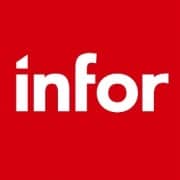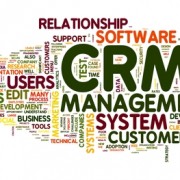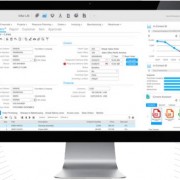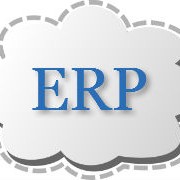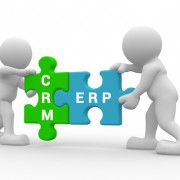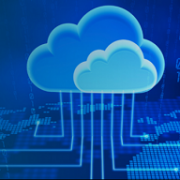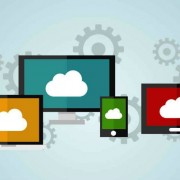Infor has announced Infor M3 version 13.3, which delivers deep industry-specific functionality to cover a wide range of unique business needs. Infor M3’s comprehensive enterprise resource planning (ERP) solution features core processes to manage customer service, manufacturing operations, financials, supply chain and equipment management. Infor M3 version 13.3 is fully Infor 10x-enabled and includes Infor ION, a purpose-built middleware, and Infor Ming.le, a collaborative social business platform. John Gledhill, global director of Infor M3 Product Management, states, “Infor M3 version 13.3 allows our customers to improve their lines of business without completely overhauling their existing hardware.” This version also features an open source-based Linux platform as a deployment choice to reduce total cost of ownership for customers.
In the 1990s, it was the Internet. In the early 2000s, it was about mobility. Today, it’s the era of “living services.”
Officials point out that the first industry to get this third wave on the ground running is the healthcare industry. Why? Because it’s already present in healthcare. Self-health tracking devices, apps, watches, and other wearables are easily accessible to anyone with a smart device.
Brian Whipple, senior managing director for Accenture Interactive, says this third wave is called ‘living services’ becasue “they will change consumer experiences, be driven by things that are very proximate to us such as wearables and nearables,and, at the human level, living services will affect our lives in a much deeper and more positive way than mobile and Web services have.”
With this third wave fast approaching, individualized healthcare can be administered more efficiently and more effectively,” officials concluded.
In today’s digital world customer engagement is no longer just about the product or service a company delivers but delivering it in a trustworthy and personalized way. Companies must differentiate themselves through customer experience – from in-store, mobile, social, web presence, and more.
Organizations must align their customer relationship management (CRM) delivery to today’s customer and business demands; starting with a CRM strategy with defined objectives for how organizations want to engage with customers across multiple platforms and how they can set themselves apart in a unique way.
Evolved CRM should achieve these objectives:
- Connect customers to the people who can get things done
- Manage the complexity of the enterprise
- Anticipate what’s right for customers, in real time, on every channel
- Evolve as fast as customers do
To satisfy today’s consumer, businesses need to take a more holistic approach to their CRM, which will keep their customers happy and coming back for more.
Infor has begun a healthcare drive and plans to release Infor CloudSuite Clinical in the fall, which seeks to integrate clinical and business data in a single platform. VP at Infor Healthcare Mike Poling states, “More healthcare organizations are choosing Infor as their partner because our team understands their specialised needs, and our company keeps investing in and building out our portfolio of healthcare-specific solutions… We are able to offer a deep and wide set of healthcare-specific administrative, business and clinical operational solutions to meet the needs of the even the most specialised institution.” Infor will also continually invest in its existing Healthcare Relationship Management product, a customer relationship management (CRM) suite customised for the needs of medical centers and their patients, as they see the future of Healthcare information technology to continually grow.
Infor’s improved Supply Chain Management suite will provide better collaboration between customers and partners. Advanced Scheduling will allow managers to coordinate schedules and create appointments through an integrated dashboard. John Bermudez, VP of product management at Infor, states, “Infor Advanced Scheduling is designed to achieve tight synchronisation of all operations across the production lines, helping process manufacturers overcome scheduling challenges by shortening planning time and decreasing production pauses. This solution delivers a more accurate and efficient production schedule, which streamlines the overall production process.” This feature is readily available for customers and tailored to specific industries who heavily rely on scheduling, such as hospitality.
While traditional Enterprise Resource Planning (ERP) suites aren’t completely dated, we should expect to see see hybrid deployments that blend cloud apps and connected services with modular on-premises applications start to predominate. Companies that want to stay in the mix have no choice but to modernize their systems to compete with cloud computing.
There are 4 ways the cloud could change the ERP landscape:
- Cost –ERP isn’t cheap. You pay good money to keep your hardware infrastructure, integration, customization, implementation and support up to date. With the cloud, you turn the cost of the application into one low monthly fee, which includes the “whole package”.
- Speed to market – the cloud is quick and easy to configure for the needs of your business, meaning the implementation phase can be relatively shorter, opening up your time to work on process improvements.
- Agility and scalability – ERP systems are not as flexible as the cloud, and if your business changes in size, scope or focus, you might need to rip everything out and start all over again.
- Mobility and connectedness – The cloud makes it simple to give people secure access to business systems wherever they are, with a frictionless user experience.
Customer Relationship Management, or CRM, is a system for managing a company’s interactions with current and future customers; and technology is used to organize, automate and synchronize sales, marketing, customer service and technical support.
Enterprise Resource Planning, or ERP, is a business management software that allows a company to use a system of integrated applications to manage the business, and automate back office functions related to finance, manufacturing, budgeting and forecasting, professional services and human resources to name but a few.
To make business decisions, an attempt is made to position for one or the other, as the most effective business application in that role. But as companies and technology are ever-changing, it seems that the line between ERP and CRM are blurred, the need to compare them becoming almost moot.
These days we see ERP and CRM as complementary to one another in a sense that they enable not only the automation of many business processes, but also add controls into a business. They enable and empower people and work together to ensure that nothing slips from their site.
Understanding that there is a natural overlap, or complimentary service between ERP and CRM, and how best to leverage this, will deliver more efficient, and in some instances more cost-effective solutions. Companies can experience maximum benefit from the complimentary and overlapping roles of ERP and CRM.
For years there has been talk in the IT world that most server workloads will eventually move to the cloud because of the economies of scale advantages. The centralized Enterprise Resource Planning (ERP) suite has resisted until now, showing signs that ERP is finally succumbing to cloud computing.
“We have reached a tipping point with cloud ERP,” says Rebecca Wettemann, vice president of research for Nucleus. “A lot of companies are getting to the point where their next ERP upgrade is almost a re-implementation, so they’re looking at their other options.”
According to Wettemann, cloud options are available in almost all ERP packages. “All of them have options for some version of hosting, certainly,” Wettemann says. “But I think we’ll see more and more” adopt the cloud delivery model going forward.
Businesses these days could benefit greatly from social collaboration within enterprise resource planning (ERP) solutions. Today’s ERP systems should engage employees, customers, partners, suppliers and constituents within a business. It’s about a company becoming more responsive, reacting to challenges quicker, and leveraging all the information you’ve gathered in the past to avoid future problems in order to stay competitive in today’s business environment. ERP collaboration is even simpler these days since these platforms have social collaboration tools integrated. Users of the ERP systems can participate across every department, bringing employees together to share their expertise and increase productivity. Collaboration is a competitive advantage that is essential for the future prosperity of any company.
Working in partnership with Amazon Web Services, Infor is targeting suppliers and warehouse operators with the release of Supply Chain Execution (SCE) to the cloud. The product will allow customers to manage their warehouses, workers, third-party logistics billing and transport in a cloud program.
“Infor SCE has taken this next major step forward creating a reliable cloud solution that is both an affordable and flexible tool for creating efficiency within the supply chain,” says John Bermudez, VP of product management at Infor.
SCE will also grant users access to Infor’s collaboration tool Ming.le, and the company’s Intelligent Open Network (ION), which helps integrate applications from different vendors.

